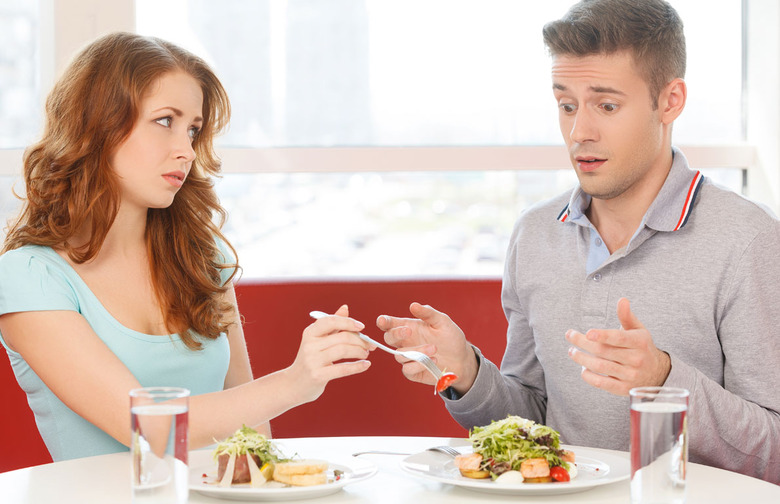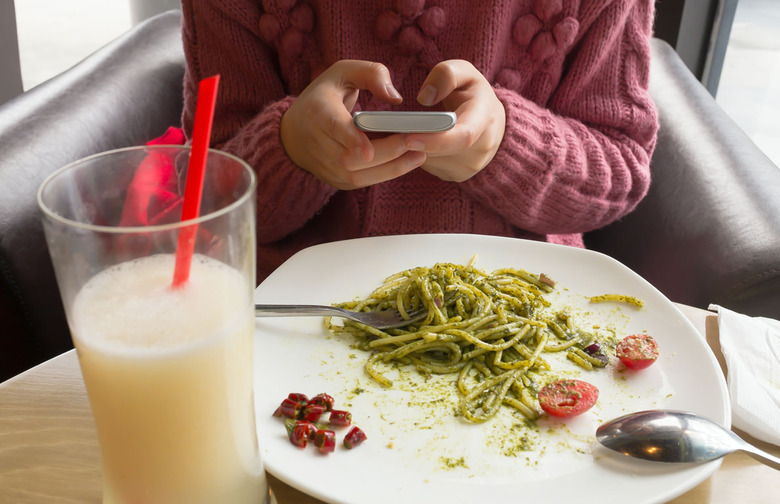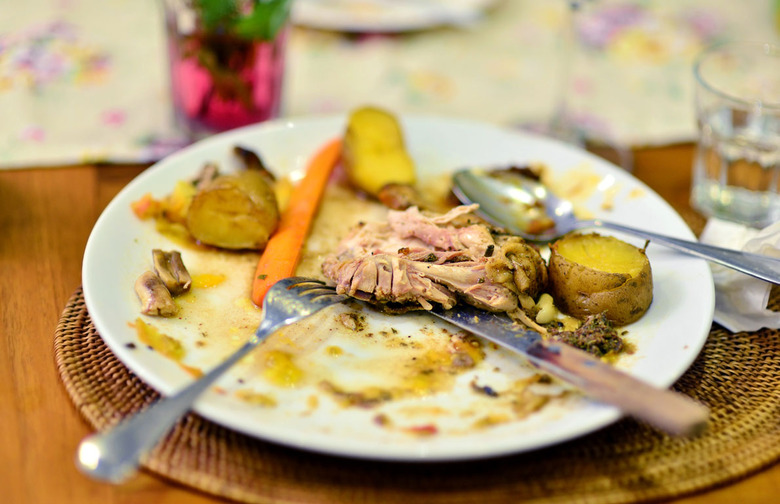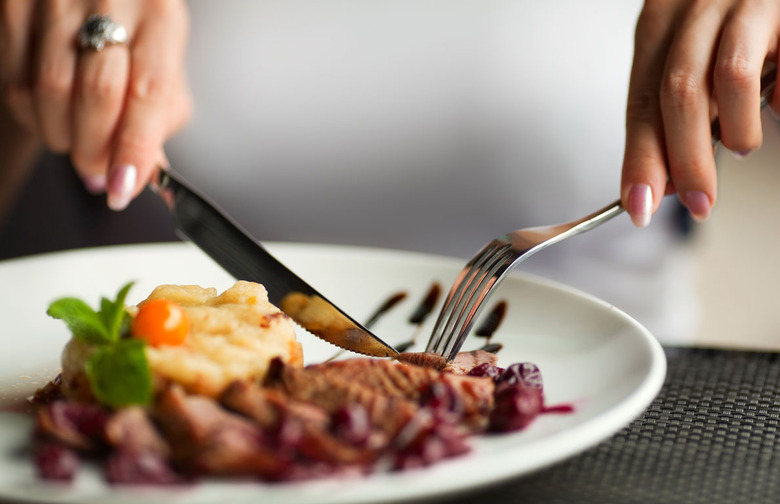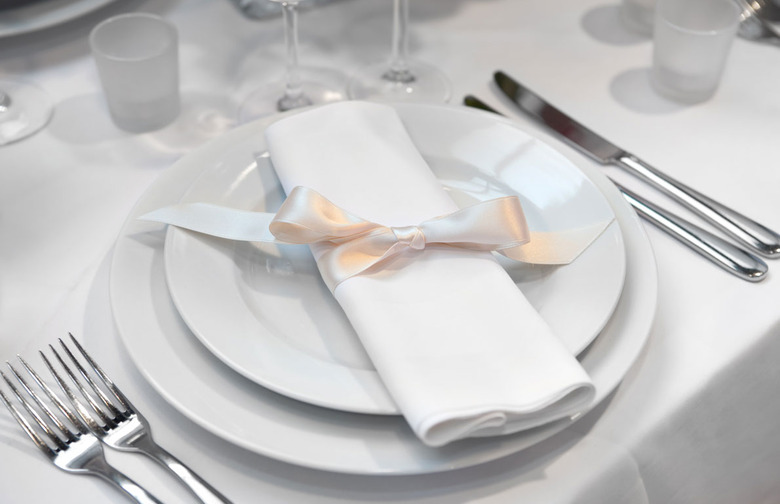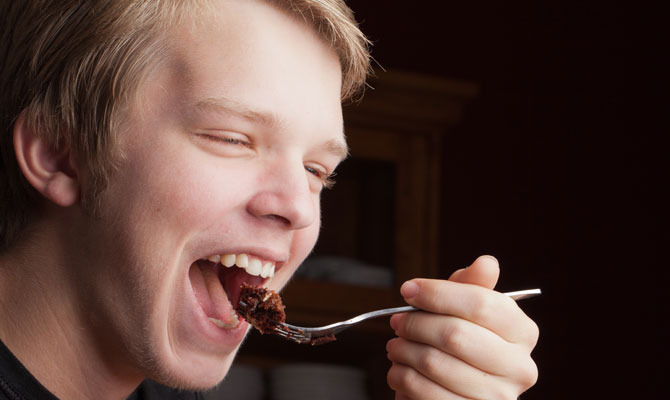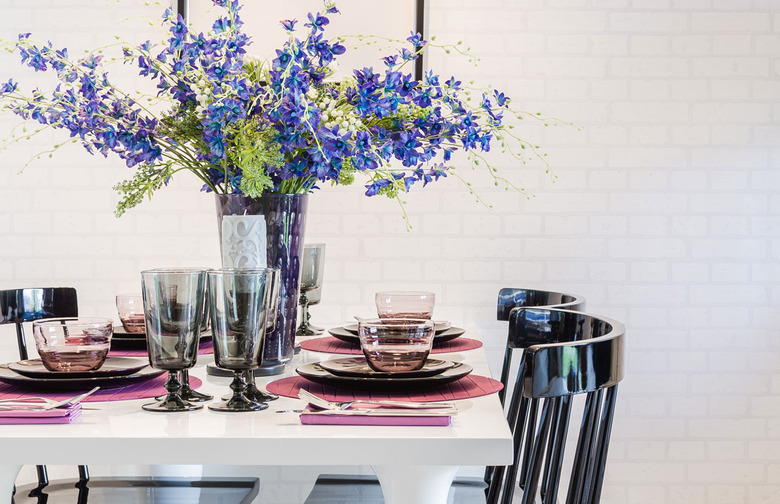Do You Have Terrible Table Manners? Signs You Need To Clean Up Your Act
To help you brush up on your table manners, we asked some of the world's most knowledgeable etiquette experts what common table faux pas you may be committing
Assuming Everyone is a “Sharer”
You might not think twice about doing dinner "family style," but others at the table may not appreciate it.
"There are loads of folks who grow up sharing food from each other's plates," says etiquette expert and relationship author April Masini of AskApril, an advice website. "Don't assume the person next to you is one of them. Having someone steal food from your plate with his or her fork (or worse, fingers) while you're eating is boundary-crossing. If you'd like some of what's on your dinner companion's plate, simply ask — or better yet, offer something from your plate first, and see if she or he responds in kind."
Buttering Your Bread by the Slice
This is definitely an old-school tip, but if you are at a formal table, it will come in handy.
"The only correct way to butter and eat bread is to put the butter on the side of your bread plate first," stresses Maggie Oldham of Modern Etiquette Coach, "then tear off one bite-sized piece of bread at a time and put butter on that piece only, right before putting it into your mouth. More sophisticated dining companions will silently call you out if you butter the whole piece of bread."
Checking Your Phone
In a digital age, you may think it's OK to peek at your phone a few times while at the table, but etiquette experts will never let that one slide.
"The phone should never be a fixture on the table: resist checking it or surfing social media," says Richie Freeman, best-selling author and self-proclaimed Modern Manners Guy. "That is the single rudest dining faux pas imaginable."
But checking your phone isn't the only phone faux pas you can commit.
"Never take calls at the table," says Masini. "It may seem like modern table settings should include a place for a cell phone, but they don't. Plunking your phone down on the table sets the tone for a dining experience that's going to be interrupted, and worse, punctuated, by calls received and made. The best manners include eating at a place setting sans the phone."
Digging in First
Just because the food looks amazing doesn't mean that you should dive right in and enjoy!
"It's good manners to wait until everyone at the table has been served before beginning to eat," instructs Masini. "If you're at a dinner party, wait until the host or hostess begins eating —that's your cue to begin as well. Exceptions include when the person not served, or the hostess, says, "Please start — don't wait for me!" Then, it's your discretion — you can begin or wait."
Drinking Out of Your Neighbor's Glass
Nothing is more awkward than trying to discern which glass is yours and wondering whether your neighbor has already sipped from it.
"A common faux pas among diners is not knowing whose glass is whose," says Oldham. "A quick way to navigate table settings is to think of a BMW, and to translate that into "bread, meal, water." If you think "BMW" at your seat, you'll have your 'B' bread plate on the left, 'M' meal plate in the middle, and 'W' water glass on the right. Another trick is to make the letter 'b' with your left hand and the letter 'd' with your right hand (like you're making the number '3' in Europe or giving the OK sign) to remember that the 'b' bread plate is on the left and 'd' drink glasses are on the right."
Licking the Knife
We're sure that your host will be pleased you are looking for just one more taste of her or his food, but frankly, licking your knife is kind of gross.
"Licking the knife is another thing that grosses me out, especially since I am European, and all knives used to be sharp,' says Adeodata Czink, founder of etiquette coaching Business of Manners. "That's why you never see a European lick a knife unless he or she has a death wish."
Ordering Before Your Date
If you initiated the date, you may not want to be so bold as to order first.
"You may be ordering bacon, but you're the bigger piggy if you don't let your guest order first," Masini quips.
Placing Your Napkin on Your Lap Too Soon
It may seem like the polite and neat thing to do, but it's not actually proper protocol.
"Contrary to popular belief, once you have been seated, you should not immediately place your napkin on your lap," says Seid. "The act of placing a napkin on your lap is the signal the meal is about to begin. What if others are not yet seated? Worse yet, what if the host or hostess isn't seated yet? There's a simple remedy: wait until everyone is seated and/or the host places their napkin on their lap. Otherwise, it will appear as though you are exceedingly hungry and are ready to eat, without any regard to others and to the host."
Shoveling food into your mouth
Eating with company? Slow. Down.
"This seems to happen more with men, and they never realize they're doing it," says Oldham. "It basically looks like this: The guy is hunched over with his face about eight inches from the plate, shoveling food as fast as he can into his mouth. No matter how hungry you are, remember to sit up straight (it looks good and is better for digestion), and completely chew and swallow the last bite before taking another one. This little difference is huge in terms of personal image: it portrays more sophistication, polish, and class."
Sitting Wherever
Just because someone invites you into her or his home doesn't mean "mi casa es su casa."
"When at a hosted table, never plop yourself down in a chair without waiting to be directed by the host," says Syndi Seid, author and etiquette expert. "Simple remedy: Wait until the host directs you to a chair, or politely ask, "John, where would you like me to sit tonight?"
Talking with Your Mouth Full
Saying anything, even for a second, with your mouth full, is considered improper.
"Talking with your mouth full is a very rude behavior," says Maryanne Parker, founder of etiquette coaching service Manor of Manners. "Not only is it unappealing, but nobody will be able to understand what you are trying to say, either. At the same time gives a very bad impression about yourself, and about your level of exposure [to formal environments]. Don't begin talking until after you've swallowed your food, and take small bites. Use your napkin after you take a bite, and before you take a sip from your glass."

